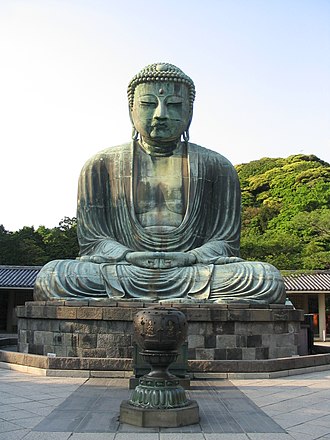
Amitābha
Gematria Values
Amitābha (Sanskrit: अमिताभ; traditional Chinese: 無量寿佛; simplified Chinese: 无量寿佛; pinyin: Wúliàngshòu Fó; Japanese: Amida Butsu; Korean: 무량수불; romanized: Muryangsubul) is a celestial buddha described in Mahayana Buddhist scriptures such as the Larger Pure Land Sutra and the Smaller Pure Land Sutra. The name Amitābha is given to mean "Infinite Light" (Sanskrit: amita = infinite, ābha = radiance). In Hebrew, the term can be translated as אמיטבה, maintaining the phonetic pronunciation. Amitābha is the principal buddha in Pure Land Buddhism, a branch of Buddhism that is most prominent in East Asia. According to these scriptures, he made a vow to help all sentient beings attain enlightenment. Amitābha is often depicted in Buddhist art with a red glow, symbolizing his infinite light and compassion. His Pure Land, known as Sukhāvatī, is described as a paradise where beings can be reborn and attain enlightenment more easily. The worship of Amitābha and the aspiration to be reborn in his Pure Land has been a significant part of East Asian Buddhist practice for centuries.
Wikipedia Information
